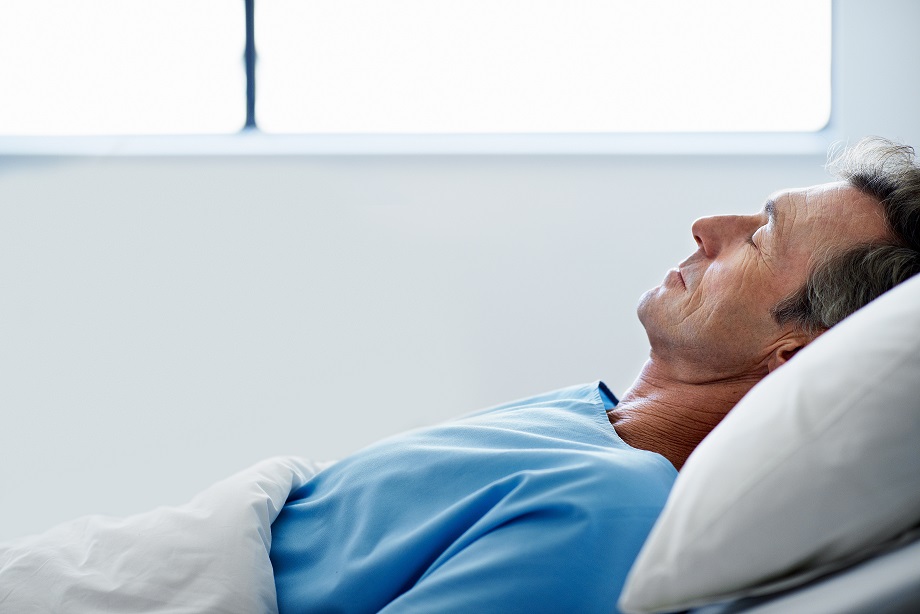What is sleep apnoea?
In deep sleep, the muscles of the throat relax and may reduce the space at the back of the tongue, through which air must pass. Obstructive sleep apnoea (OSA) occurs when your airway is blocked partly or completely obstructed during sleep, meaning your breathing may be reduced or stop all together. This results in your oxygen level dropping, causing you to wake up briefly and then start breathing again. This results in poor and disrupted sleep.
Who gets sleep apnoea?
Sleep apnoea is more common in those who are:
-
Overweight
-
Middle-aged
-
Males
-
Those who snore
-
People with blocked noses, small jaws, big tongues/tonsils/uvulas
-
Use of alcohol or sleeping tablets
What are the symptoms of sleep apnoea?
People may be aware or unaware of their disrupted sleep, often it will be your partner complaining of loud snoring or noticing that you stop breathing in your sleep. Other symptoms of OSA include:
-
Not feeling well-rested in the morning
-
Daytime sleepiness/falling asleep
-
Gasping/choking in sleep
-
Difficulty maintaining concentration
-
Going to the toilet more during the night
-
Poor memory
-
Morning headache
-
Mood changes
-
Loss of interest in sex/erectile dysfunction
What are the risks of sleep apnoea?
There is a lot of evidence that people with sleep apnoea have higher rates of heart disease, in particular high blood pressure, heart attacks, heart failure and strokes. This may be because with each apnoea (when your breathing stops), your blood pressure may rise and your heart beat may become irregular. In addition, people with OSA are more likely to have other heart disease risk factors such as obesity, diabetes and high cholesterol.
In addition, people with sleep apnoea are up to 4 times more likely to have a motor vehicle accident than those without, due to the risk of falling asleep at the wheel.
What should I do if I am worried I have sleep apnoea?
Discuss your symptoms and concerns with your doctor. The best way to diagnose sleep apnoea is with an overnight Sleep Study. This measures your night-time breathing and oxygen levels, and will report whether you stop breathing at night and how many times.
Sleep apnoea can be treated using a machine called CPAP. This is a pump that provides gentle air pressure through your airways while you sleep to keep them from becoming obstructed. At first it may be difficult to sleep using a CPAP machine, but once you get used to it you will find that you get a much more refreshing sleep.
It is also important to manage OSA with lifestyle measures, such as losing weight if you are overweight.
If you are worried that you may have sleep apnoea, it is important that you do not operate heavy machinery until it has been treated. You should avoid things which can make OSA worse like alcohol and sleeping tablets, as well as other things that can disrupt your sleep such as caffeine.
References:
Medscape. 2018. Obstructive Sleep Apnea Clinical Presentation: History, Physical Examination, Predictive Value of History and Physical Examination. [ONLINE] Available at: https://emedicine.medscape.com/article/295807-clinical#b5. [Accessed 05 May 2018].
Lung Foundation Australia 2011. Obstructive Sleep Apnoea. [ONLINE] Available at: http://lungfoundation.com.au/wp-content/uploads/2012/06/Obstructive-Sleep-Apnoea.pdf [Accessed 05 May 2018].
Sleep Health Foundation. 2011. Obstructive Sleep Apnoea. [ONLINE] Available at: https://www.sleephealthfoundation.org.au/files/pdfs/Obstructive%20Sleep%20Apnoea.pdf [Accessed 05 May 2018].

